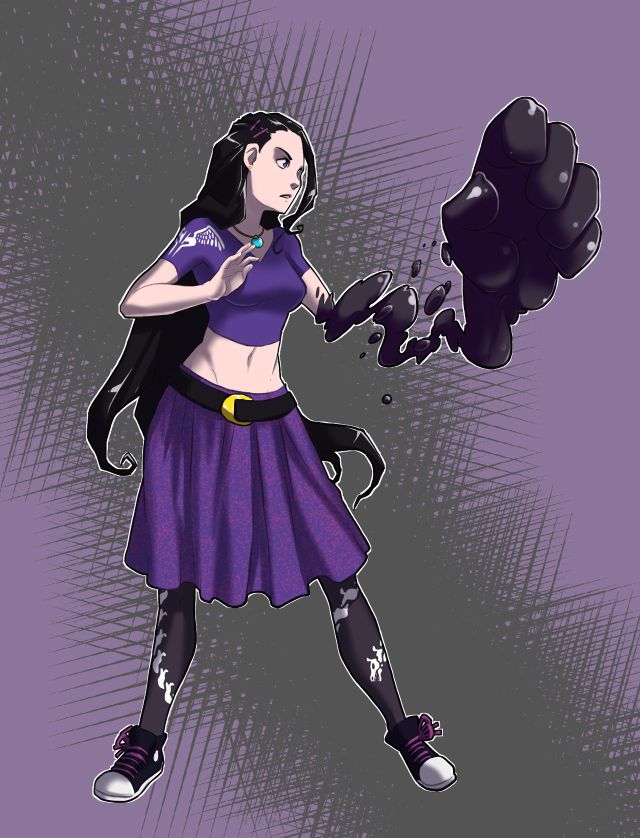Question OH GOD, WHAT THE HELL HAVE I DONE!!!
- CrazyMinh
-
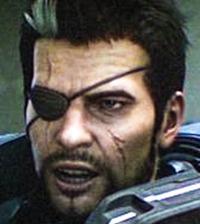 Topic Author
Topic Author
You can find my stories at Fanfiction.net here .
You can also check out my fanfiction guest riffs at Library of the Dammed
- CrazyMinh
-
 Topic Author
Topic Author
You can find my stories at Fanfiction.net here .
You can also check out my fanfiction guest riffs at Library of the Dammed
- Astrodragon
-
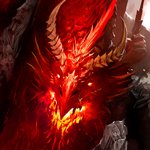
A lot of the questions are basically 'do you have this power/ability/whatever which other people dont have'.
Since Whateley has wall to wall mutants, this isnt a Sue pointer in the same way.
Having the ability to, say, lift 5 tons, isnt exceptional at Whateley.
Although having a huge range of abilities when you normally only have a couple, is a Sue test.
Also, the G1 characters were, iirc, deliberately designed as being ott for a number of reasons. So the Sue test on them doesnt give sendible results, they are supposed to be like that.
Mind, even allowing for the above, your score is dangerously high
I love watching their innocent little faces smiling happily as they trip gaily down the garden path, before finding the pit with the rusty spikes.
- JG
-
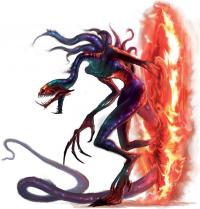
running the outcasts through the litmus test tends to run the 4-16 range.
Caitlin's the highest because she pounds on Turd Platoon. but still floats near a 10.
The context of the questions matters. Fey tends to drop score sharply when you take away the context of a lot of the questions.especially when filtered through the whateley setting.
I'm pretty sure that Jericho and Razorback ping the Anti-Sue track, though I'll admit that's pretty fucking deliberate.
- Astrodragon
-

I love watching their innocent little faces smiling happily as they trip gaily down the garden path, before finding the pit with the rusty spikes.
- Sir Lee
-
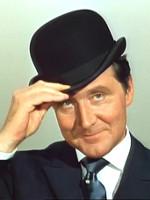
- Astrodragon
-

Having said that, its still very useful if you're worried about your chracter being a Sue, but by reading the questions with a view to what they mean in the world/story context.It's a useful sanity check.
I love watching their innocent little faces smiling happily as they trip gaily down the garden path, before finding the pit with the rusty spikes.
- Greatdingo
-
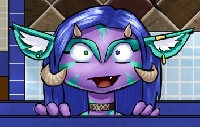
A character might be the strongest, not just by far, but in fact so powerful that their power becomes useless.
I believe there's an example of that, with a character who's ability means death for the one on the receiving end. Incredibly powerful, but not particularly useful.
- Rose Bunny
-
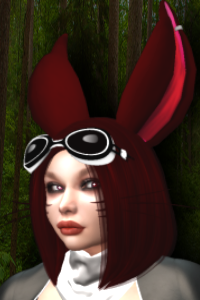
High-Priestess of the Order of Spirit-Chan
- Kristin Darken
-
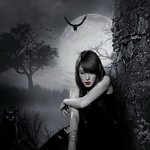
Mary Sue, on the other hand, is completely about usage. By default, protagonist characters are the 'go to' for whatever it is they do within their world. That doesn't mean they are the best or the most powerful... it just means that the focus of events is on them. Any time a substitute character, especially in a fan fic, exists... it begins to be measured on the Mary Sue scaling. The 'better' they are at whatever it is they are replacing a protagonist for... and the more often they are used as a replacement... the more Mary Sue they are.
By that perspective, its very easy to have an overpowered character that is not Mary Sue. They'll have 'other' issues... like lack of effective conflicts (because they're powerful enough to solve anything too easily) and they'll skew the scaling of the rest of the setting, especially if you try to write them into groups where they either carry all the weight or they get everyone else killed because no one else is at their level. It's also possible to have a Mary Sue that is NOT overpowered. That's less common though, which is why a lot of people put the two problems into the same description.
Fate guard you and grant you a Light to brighten your Way.
- E. E. Nalley
-
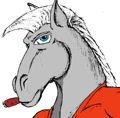
Now, for those that don't know, the origin of Mary Sue was an article in the old Star Trek TOS fanzine Menagerie #2 by Paula Smith entitled 'A Trekkie's Tale'. It is a 'how not to' kind of rant about the kinds of characters that she had seen beginning to infest Star Trek Fan Fiction. To Whit: Lt Mary Sue, the youngest graduate of Star Fleet Academy at 15 1/2. She was a better pilot than Sulu, a better engineer than Scotty, a better doctor than McCoy, more intelligent than Spock and could make Kirk faithful and give up his womanizing ways. Don't take my word for it, go read 'A Trekkie's Tale', it's really that bad, but on purpose.
So now a number of common traps characters fall into are called Mary Sue, even though they're not. For example:
A character that is the 'best' at something in a universe is not a Mary Sue, they're a Pro From Dover.
A character who can bed everyone is not a Mary Sue, they're a Don Juan.
A character who everyone falls hopelessly in love with is not a Mary Sue, they're a Lady Godivia
You get the idea. Lots of characters can have faults, even multiple faults, but to accuse an author of a Mary Sue is pretty serious, it means the character is so over the top IRREDEEMABLY bad it is better scrap the entire story and start over. Just about the only thing worse you can say to an author is 'Consider taking up baking as a hobby instead of writing...'
I would rather be exposed to the inconveniences attending too much liberty than to those attending too small a degree of it.
Thomas Jefferson, to Archibald Stuart, 1791
- Polk Kitsune
-
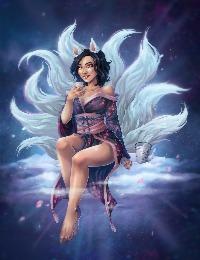
When you think about it, Superman is an extreme Mary Sue character. Super Powerful, super special, the last of his being, and so forth. During the golden age, he had new superpowers on the fly (*bah-dum-tish*). Some might say it's why Luthor thinks of him as a problem for humanity. That he's born special, and humanity woudl be obsolete (Not realizing that he, himself, is part Sue, being special, good at everything, and above the law. I do like a bit of irony).
Still remembering this little line from Deathbattle:
"He once held up a book containing infinite pages!"
"Well, he did have the help from Shazam at the time."
"Wiz, tell me: what's half of infinity? FRIGGIN' INFINITY!"
But still, Superman stories are done nonetheless, and he wouldn't be around if he wasn't liked (to varying degrees). Often done by balancing the scales around them to make interesting stories. Either by upping the scales, lowering their powers or putting them in situations where their powers don't matter. Or the topic of the story has a different lesson involved.
The better stories isn't about Superman showing off how strong he is. It's how the world reacts around him, and how he reacts to it.
For those who remember the episode in Justice League, where Superman is trapped in a dream world of Krypton, a world where he has everything he desires and wished for... And although it's not the end of the episode, the strongest moment was when he looked his son in the eyes, and tells him he doesn't believe he's real... It's heartbreaking. Well written moment.
Fey is indeed extremely powerful character. In fact, a lot of the Team Kimba fit that mold. You do have to take in the consideration of those around them, yes, since it does shift the power scales in that universe. Even then, they're still a bit over-powered in that standard... Yet they're not kings and queen either. They have opponents, struggles, conflicts, and situations that drive them into danger.
Yes, Tennyo is extremely powerful, but the main matter of her stories isn't only about her kicking ass. It's about how she's a danger to everyone else, is often alienated from the others and even the law feels against her just existing at times.
Fey is also overpowered, but the villains she's put up against will often either target her for being this powerful, thinking of using her, and prepare as such, or trouble comes in the form of the law and how much of a risk she is to everyone around her.
They may be powerful, which is often associated with Mary Sues, but they still have interesting stories about them.
When a Mary Sue is used as a proper insult or description is when the story revolves about the character being better than everyone. The story becomes boring, uninteresting or even in some cases, insulting to the reader. When the focus of the story is about how beautiful and perfect they are, and any 'opposition' is simply brushed off by the Mary Sue character.
Unfortunately, the term is often tossed around when people are simply mad about one character, when there should be more thoughts put behind the term. Context is important when singling out a character being marked as Sue, since two writers writing the same character can have total different portrayals in the way they write.
Fanfiction characters will often be the ones pointed out as being Mary Sue'd, since there's a canon bible to use as a source, and can often be used to contrast to the fanfiction written. Doesn't mean original stories can't have their share of those characters, but the measurements have to be a lot more careful before pointing the fingers.
The test here is interesting, to say the least. It's not a perfect test for telling what a Mary Sue character is, in fact it states at the start and end that it isn't absolute, so do take it with a grain of salt.
That being told, it does explore a lot of tropes seen in the theme alone, so as you read, you might recognize some characters with those traits, or find out about tropes you're not aware of. It can be enlightening.
It's also more than just a list of powers to check off, as if power levels is the measure of your characters. It also lists off how other characters react to your protagonist, or how some reactions may be inappropriate at times. It criticizes not only the characters' traits, but the world around them.
It also accounts for resemblances to the writer. That one is a whole lot more personal, so if you try entering the score of a character that doesn't belong to you, it may screw the score.
Hrm. In fact, one might ask why those questions would be a part of this test. It'd be partly because some Mary Sue characters are often wish-fulfillment machines for the writer. A better version of themselves inserted so they can picture being in a world for them or in the case of some fanfiction, insert themselves interacting with their favorite characters.
Does that make for bad characters? In a fashion, it can, and it makes for easy bait for new writers to fall into. To make them feel powerful, and often, they may take an easy path for that, making for really, reeaaally lazy writing, which in turn can turn on the reader.
But is it all bad that your character shares some of your passions? I'd argue on that at times, since if you're passionate about the subject, you can describe it in length about the topic without having to do long, intensive research into learning the subject, leading to a more personal, genuine feeling when you read it.
It's a point like this that makes me feel the test isn't meant to be about the points. It's meant to make you reflect on your character and story.
"Does she really need to have rainbow-colored eyes?"
"Does it make sense that she's both Vulcan, Klingon and Q?"
"Do I really say that my character is that beautiful in my story?"
Once you reflect on those topics, you can improve on them, make a better story.
Or if you find a trope that can inspire to make a new story, it can inspire something new.
Just because you have a powerful character doesn't mean you can't have a compelling story. Look at Superman or even One Punch Man.
Do take a moment to reflect on what you've gone through.
And if you take the test, take it with a grain of salt, and in the end, reflect on what you've done.
My story: Evershade: Reforming
- Sir Lee
-

Yes, overpowered does not necessarily mean bad character. The ur-example being Superman, who was _designed_ as an overpowered character since Day One (no, he wasn't able to move planets back then; but his opponents at the time were common thugs, so he was still overpowered compared to them. As villains ramped up, his powers were increased so he was kept overpowered. And remember, this character was so successful that in a matter of months there were literally dozens of copies around). But, as has been pointed out, you can still write good stories with an overpowered character. Consider not only "For the Man who Has Everything" (by the way, it's no wonder that the Justice League episode was so memorable; it's a direct adaptation of an Alan Moore story widely considered one of the best Superman stories EVER). Speaking of Alan Moore, Dr. Manhattan is deliberately, extremely overpowered for the setting; he's the only one with superpowers, and his powers are deity-level -- and not those puny Greco-Roman, Nordic or Egyptian gods either. But Marty Stu he's not. Nor is Miracleman, by the way -- another Moore overpowered character exploration whose tragedy is that he's unable to understand what the utopia he created has cost.
Another great Superman story exploring what means to be overpowered that comes to mind is "What's So Funny About Truth, Justice and the American Way?" which puts him in opposition to a copyright-friendly version of The Authority. Again, no Marty Stu.
- Katssun
-
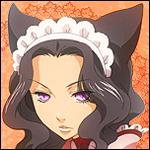
- Are they quickly skilled at nearly everything they do, even when they enter a new area of expertise?
- Do their previously established abilities translate to these new areas, allowing them expertise in those as well?
- Do they rarely, if ever, seem particularly challenged at any task?
- Do they have, or obtain, an ability that breaks the established rules of the world they inhabit? (edit: Without appropriate foreshadowing that has been built up for a significant amount of time, because that is often quite fine.)
Bonus: Do they narrate or talk about their skills or knowledge all the time?!
Fey, for example, fails every single one of these questions, despite her power, despite being aided by Aung. She's mentored by Aung, and her teachers, slowly. She's thrown into a new environment and starts from scratch (in a lot of things). She lacks control early on, still does. She's not the first Sidhe (very specifically I might add), and she's almost certainly not the first Wiz-7 (though I could be wrong).
Everyone's hated example, Wesley Crusher, fails all these questions, though the last one isn't quite as obvious.
- null0trooper
-
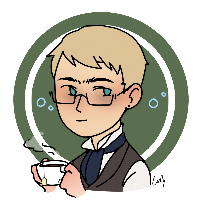
JG wrote: also remember the context of the questions: power use and/or bad decisions without consequence is a common theme. mental disorders and trauma that have no negative effects et al.
So for something like:
67. Is anyone envious of your character's talents and/or abilities?
Little brothers don't count?
Do most or all of your character's friends and buddies lead glamorous, exciting, and/or interesting or highly dramatic lives?
Metro's former profession is popularly thought of as "all of the above" by people not in the biz. And it is exciting in a run for your life way. But for him it's the default setting and part of the reason he never made many friends that lived.
Would any of them die for your character?
I have a feeling that being sold out by the character was not exactly what the author had in mind.
Do you think of your character as a role model?
Aside from the genre and setting's context, the checklist is aimed at new and heroic characters. Thus, no provisions for asking about common, mildly positive states where the answer isn't just "No" but "Hell no", "Dear God, NO", or even "Are you out of your fscking mind?"
Forum-posted ideas are freely adoptable.
WhatIF Stories: Buy the Book
Discussion Thread
- Polk Kitsune
-

Hrmmm... That reminded me on one anime I saw fro about... 5-6 episodes of. Knight's and Magic.Katssun wrote: I've always thought the qualifications for Mary Sue's was really down to a few key points:
- Are they quickly skilled at nearly everything they do, even when they enter a new area of expertise?
- Do their previously established abilities translate to these new areas, allowing them expertise in those as well?
- Do they rarely, if ever, seem particularly challenged at any task?
- Do they have, or obtain, an ability that breaks the established rules of the world they inhabit? (edit: Without appropriate foreshadowing that has been built up for a significant amount of time, because that is often quite fine.)
Bonus: Do they narrate or talk about their skills or knowledge all the time?!
The main character fit all of those questions to a T. I have no questions that he was a Marty Stu character in that universe. Young boy, creates tech more advanced than anything the universe could use, and a mastery of things that just breaks the fundamental beliefs of the populace. Taken as a prodigy that people can't believe it.
I did follow it for a while though, because the story didn't just focus on him. The characters around him evolved, had discussions, government intrigue grew around him, even if he wasn't interested in it. The populace recognized his overpowered status, and reacted accordingly. I also kept watching, because some of the concepts in the mechas were interesting, and the characters around him had more focus than he had.
My story: Evershade: Reforming
- Astrodragon
-

There are writers (I'm using the term loosely here), who not only tick the majority of those boxes, but don't see any problems with doing so!.
And keep on writing. While ignoring any criticism.
Consider yourselves lucky...
I love watching their innocent little faces smiling happily as they trip gaily down the garden path, before finding the pit with the rusty spikes.
- Katssun
-

It's not necessarily a bad thing, having a Mary Sue/Marty Stu character in your stories.Polk Kitsune wrote: Hrmmm... That reminded me on one anime I saw fro about... 5-6 episodes of. Knight's and Magic.
The main character fit all of those questions to a T. I have no questions that he was a Marty Stu character in that universe. Young boy, creates tech more advanced than anything the universe could use, and a mastery of things that just breaks the fundamental beliefs of the populace. Taken as a prodigy that people can't believe it.
I did follow it for a while though, because the story didn't just focus on him. The characters around him evolved, had discussions, government intrigue grew around him, even if he wasn't interested in it. The populace recognized his overpowered status, and reacted accordingly. I also kept watching, because some of the concepts in the mechas were interesting, and the characters around him had more focus than he had.
My favorite example is the Tenchi spinoff, Isekai no Seikishi Monogatari.
Kenshi is forcibly sent to another world, is impossibly good at everything compared to the rest of the cast, and it is played up for laughs a large majority of the time. Why does it work? Because he is relentless humble about it.
- mhalpern
-

Any Bad Ideas I have and microscene OC character stories are freely adoptable.
- Rose Bunny
-

High-Priestess of the Order of Spirit-Chan
- Mister D
-
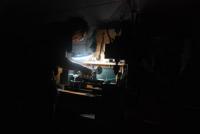
Greatdingo wrote:
I believe there's an example of that, with a character who's ability means death for the one on the receiving end. Incredibly powerful, but not particularly useful.
Another example from Super Stupor, http://www.superstupor.com/index.html is TimePeace, http://www.superstupor.com/sust05052008.shtml
Yes, he can remove any character, but doing so changes the time-line, so no-one but him knows about it...
EDIT: My mistake. The people around him know about it, but i'm not sure about anyone else.
Measure Twice
- Bek D Corbin
-
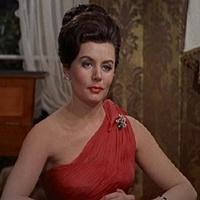
- Rose Bunny
-

High-Priestess of the Order of Spirit-Chan
- Sir Lee
-

- Astrodragon
-

I love watching their innocent little faces smiling happily as they trip gaily down the garden path, before finding the pit with the rusty spikes.
- Anne
-

I came to hate the bugger after about the third book.
Indeed, I have only read the first two if I recall correctly.
Why? Because in his own way, I consider Potter to be as much of an insufferable prig as is Malfoy.
A lot of people liked all of the books obviously, but I really thought that the fact that Potter has an eternal enemy that only Dumbledore worries about just seems odd. Just as having Dumbledore as his mentor/Godfather (not named Godfather...) seems a bit too pat.
And maybe that is what I start hating about Potter. The whole world is handed to him. The only people who oppose him are utterly evil, or just plain nasty (Malfoy and cronies...) so he comes off as a whining wimp at times.
Adopt my story: here
Nowhereville discussion
- Kettlekorn
-
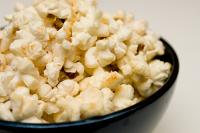
Note that Dumbledore's attention to Harry is supposed to be a clue that something bigger is going on, which becomes more evident later in the series. Harry is being kept in the dark about a lot of important things.
As far as categorizing Harry? Audience Surrogate.
- Sir Lee
-

- JG
-

There's no Story. There's no plot, no conflict, no real meat and drink that makes you feel that there's a STORY.
It's just a character prancing around going "Look at me and how awesome I am!"
And not in a way that anyone sane would consider good or funny. It hits the uncanny valley. Because NO ONE is ever that good, or that lucky, or that blessed that they never really face adversity.

